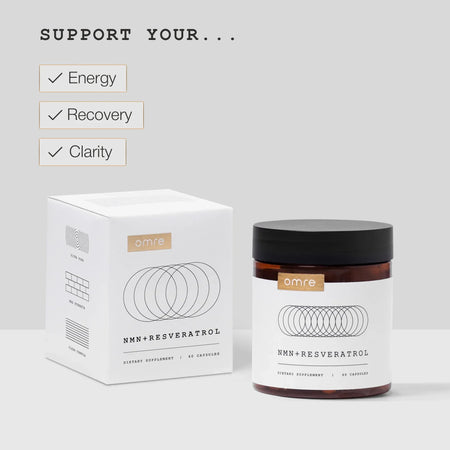In recent years, NMN (Nicotinamide Mononucleotide) has garnered significant attention in the health and wellness community, particularly for its potential anti-aging properties. As research continues to unfold, many individuals are curious about the origins of NMN and its biochemical foundation. This article aims to provide a comprehensive understanding of what NMN is made from, its sources, and its importance in human health.
What is NMN made from?
NMN is primarily made from niacin (vitamin B3), which is a vital nutrient that humans obtain through their diet. Specifically, NMN is synthesized from niacin through a series of enzymatic reactions. This process involves the conversion of niacin to nicotinamide, which is then transformed into NMN. The body can also derive NMN from other sources, such as tryptophan, an amino acid that can be converted into niacin.
NMN is a nucleotide derived from ribose and nicotinamide. The structure of NMN includes a ribose sugar, a phosphate group, and a nicotinamide moiety. This unique composition is crucial for its role in cellular metabolism and energy production. NMN serves as a precursor to Nicotinamide Adenine Dinucleotide (NAD+), a coenzyme essential for various biochemical reactions in the body, including energy metabolism, DNA repair, and cellular aging processes.
The Biochemical Pathway of NMN Production
To better understand what NMN is made from, it is essential to explore the biochemical pathways leading to its production. The synthesis of NMN involves several steps:
- Niacin to Nicotinamide: The conversion begins with niacin (vitamin B3), which can be obtained from dietary sources such as meat, fish, eggs, and green leafy vegetables. Niacin is converted into nicotinamide through the action of the enzyme nicotinamide adenine dinucleotide (NAD+).
- Nicotinamide to NMN: Once nicotinamide is formed, it undergoes phosphorylation by the enzyme nicotinamide mononucleotide adenylyltransferase (NMAT), resulting in the formation of NMN.
Dietary Sources of NMN
While the body can synthesize NMN, certain foods are known to contain measurable amounts of NMN, contributing to its availability in the diet. Some of the dietary sources of NMN include:
- Edamame: Young soybeans are one of the richest sources of NMN, making them a popular food choice for those seeking to boost their NMN levels.
- Cucumber: This refreshing vegetable also contains notable amounts of NMN, which can support overall health.
- Avocado: Known for its healthy fats, avocados are another source of NMN.
- Broccoli: This cruciferous vegetable not only provides fiber and vitamins but also contributes to NMN intake.
The Role of NMN in Human Health
NMN plays a vital role in maintaining cellular functions and overall health. Here are some key benefits associated with NMN:
- Boosting NAD+ Levels: As a precursor to NAD+, NMN supplementation helps increase NAD+ levels in the body. NAD+ is crucial for energy production, cellular repair, and regulating metabolism.
- Anti-Aging Properties: Research suggests that NMN may have anti-aging effects by promoting DNA repair and improving mitochondrial function, which can decline with age.
- Metabolic Health: NMN has been linked to enhanced insulin sensitivity and improved glucose metabolism, potentially helping to reduce the risk of type 2 diabetes.
NMN Supplementation
Given the potential benefits of NMN, many people are turning to NMN supplementation. Available in various forms, including powders, capsules, and tablets, NMN supplements are marketed to support healthy aging and metabolic health. However, it's essential to consult with a healthcare professional before starting any supplementation regimen, especially for those with underlying health conditions or those taking medication.
Conclusion
In summary, NMN is made from niacin, which is converted into nicotinamide and then synthesized into NMN through enzymatic reactions. Its unique composition allows it to play a crucial role in the production of NAD+, which is essential for energy metabolism and various cellular functions. By incorporating NMN-rich foods into your diet or considering supplementation, you may support your overall health and potentially mitigate some effects of aging. As research continues, our understanding of NMN and its benefits will undoubtedly expand, revealing new insights into this fascinating compound.
Stay Sharp, Stay Energized, Stay Ahead
Aging doesn’t have to slow you down. NMN + Resveratrol is your key to sustained energy, sharper focus, and long-term vitality. Whether you're a high performer pushing boundaries, a biohacker optimizing every aspect of life, or a parent looking to keep up with the demands of daily life, this powerful combination fuels your body at the cellular level.
Backed by science and trusted by those who refuse to settle for average aging, NMN + Resveratrol helps you stay ahead—today, tomorrow, and for years to come.
Experience the benefits for yourself. Start your journey to better aging now!
Try NMN + Resveratrol Today!
NMN + RESVERATROL
Cellular NAD+ booster with ultra‑pure NMN and Resveratrol, at research‑backed doses.*
Read more:


